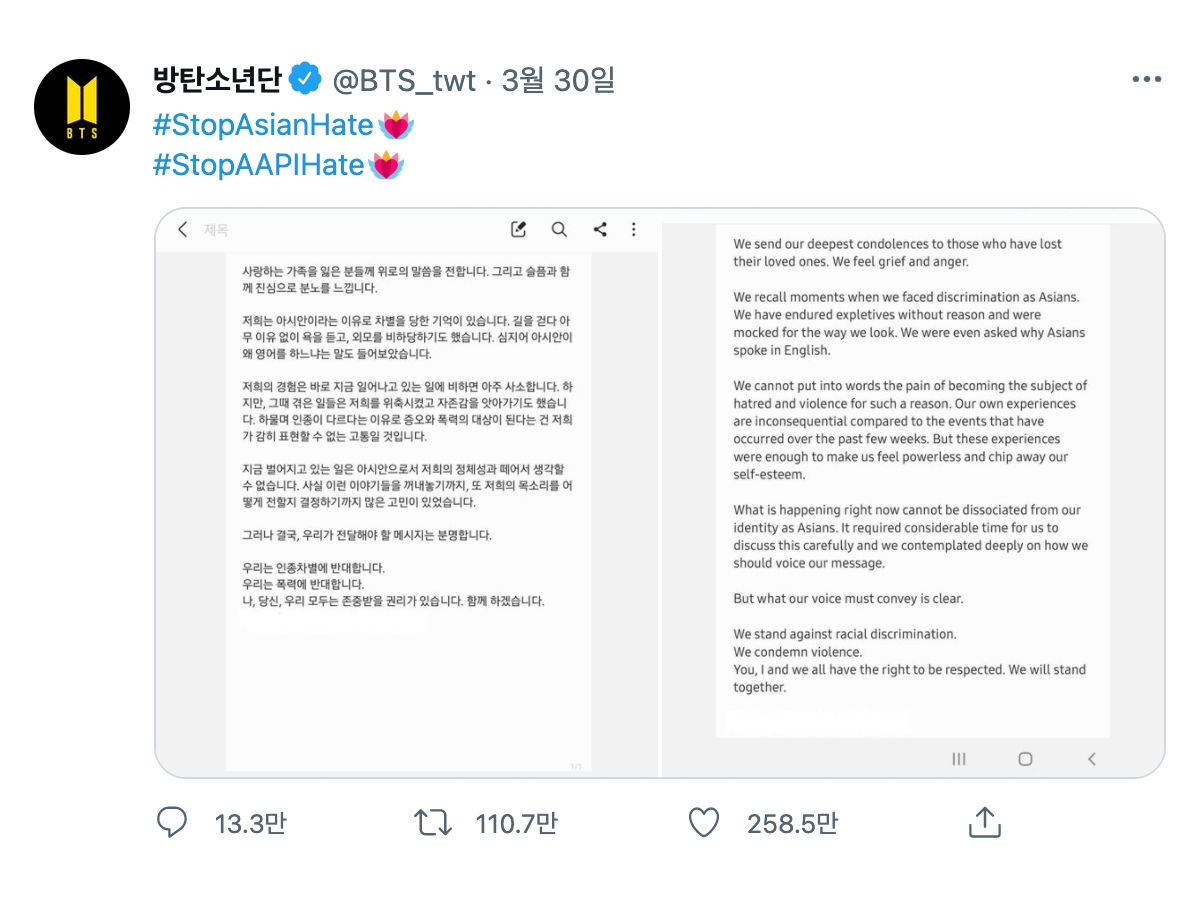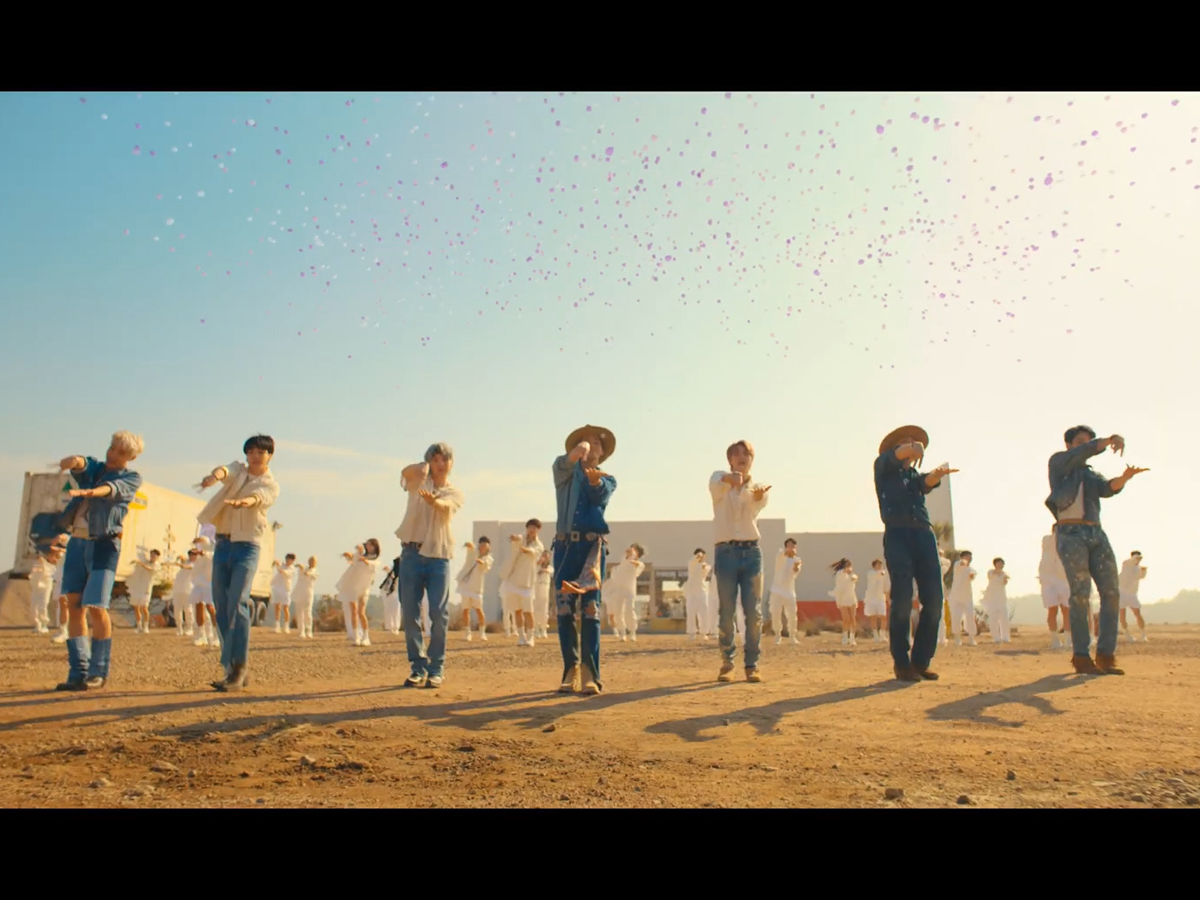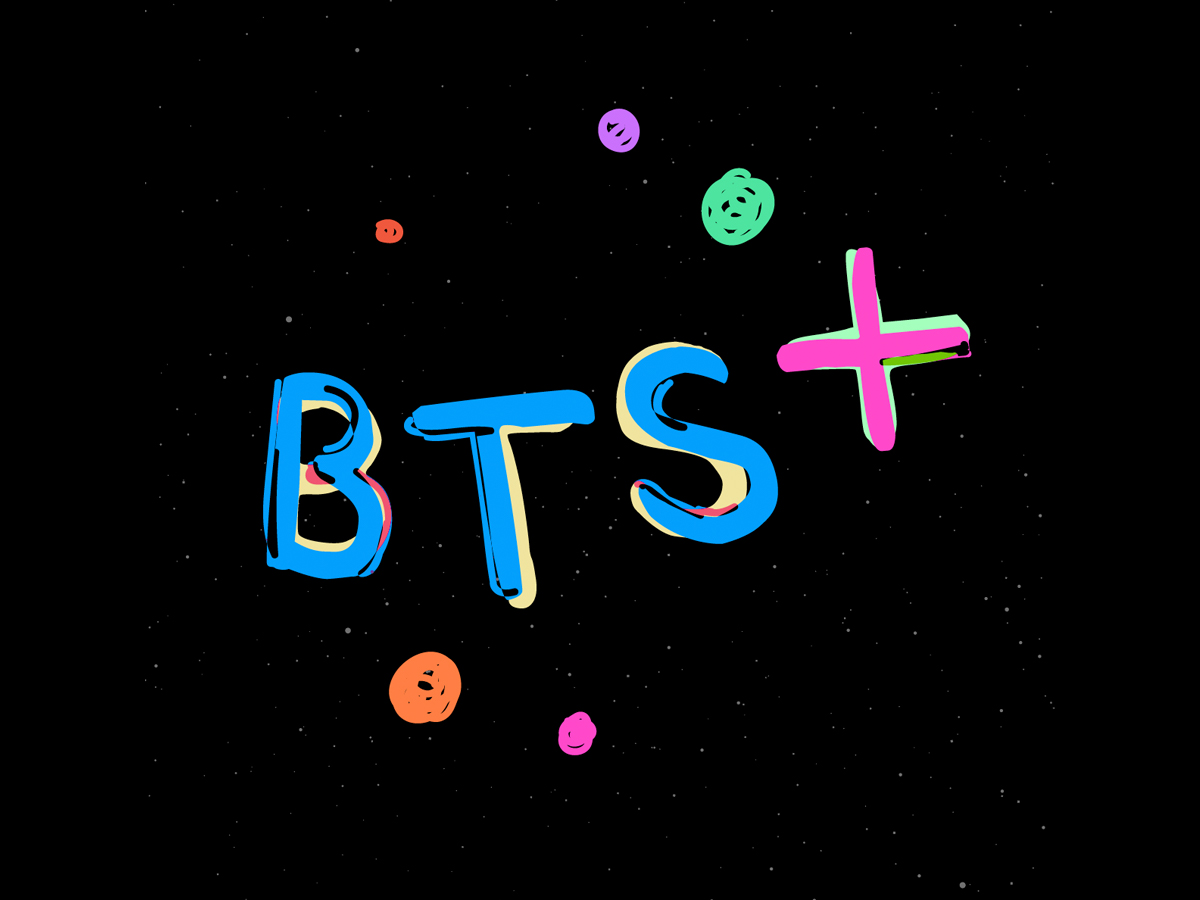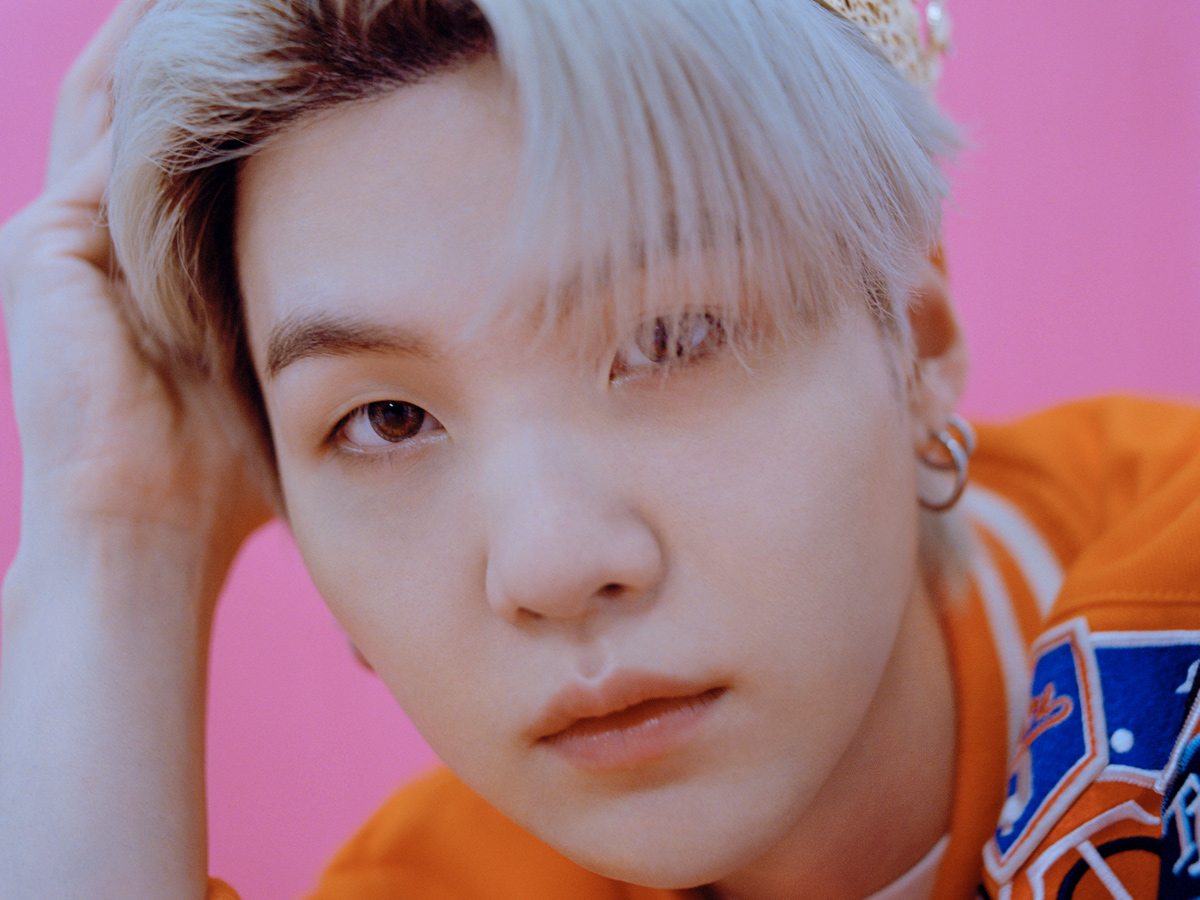
SUGA was rapping and making beats in his local hip hop crew long before his debut and also worked as a producer, completing songs with his own two hands. In a sense, he was already a professional by the time he was a teenager, given he was earning money from his work with music. If you listen to “724148,” one of the songs off his first mixtape, it seems like he mashed together stories about all the enthusiasm and ambition he had when younger, from his determination to leave his hometown in order to chase success in the music field, to the anecdote of how he boldly reworked the beat of and made a new arrangement for the audition song provided by what was then Big Hit Entertainment (now BIGHIT MUSIC). So when SUGA joined BTS, he brought with him all the taste, foresight and assuredness of a musician who had already completed more than his fair share of work.
According to his personal assessment in an interview with Weverse Magazine back in July, the musician known as SUGA takes on several identities: a member of BTS, the mixtaping hip hop artist Agust D and a producer for other artists under his “by SUGA” epithet.
He emphasizes that what he makes under “by SUGA” is “perfectly commercial music.” When he says “commercial music” here, it means that, alongside the performance, what really matters is that the producer’s ego doesn’t take precedence over the client’s vision. That might sound unexpected. BTS is considered to have an especially high degree of artistry among idols, and given the seriousness with which SUGA pursues his mixtape work, as well as by what the other members have to say about him, it seems likely he’s played an important musical role within the group as well. However, when he’s not working with BTS and instead collaborating with another artist, he’s squarely in the mindset of producer or songwriter. Such is the attitude of a professional who remains true to his client’s wishes. Naturally, SUGA can never truly become a completely different person while doing so, but the meticulous care he takes in his work has led him to expand his repertoire.
By listening to the songs he churns out despite his crammed schedule, it’s clear that SUGA listens to a wide spectrum of music and writes songs to match. The more recent the work in question, the more pronounced that diversity becomes. In other words, he continues to perform well as a creator of hip hop beats—his original and still main focus—but also takes on new and varied challenges.
The first song SUGA produced for a third party was SURAN’s “WINE,” featuring Changmo, in 2017, although he had previously worked on pop songs like “Autumn Leaves” for BTS’s albums which showcased his enduring love of R&B/hip hop. He makes good use of the panning effect on the catchy drums in both songs to create an engaging sense of space and direction, while the unique writing and production that result in a dramatic topline full of leaps and falls of notes make for an emotional song that’s carefully crafted not to exhaust itself nor lose its atmosphere of sadness. Rather, the technique paints a multilayered picture of the complex emotions that come when saying farewell. The same can be heard in his production on Heize’s song “We don’t talk together” (feat. GIRIBOY) and “Trivia: Seesaw” off BTS’s album LOVE YOURSELF: Answer.
SUGA also specializes in old school hip hop beats, lending his production style a feeling that’s somewhat nostalgic and forlorn. One of the songs he worked on in 2019, “Eternal Sunshine,” was done for Epik High, the group that had led him to dream of becoming a hip hop artist himself when he was young. The song leaves a bittersweet impression with a boom bap beat that is neither sluggish nor exhilarating intertwined with timeless instruments like the guitar, piano and scratches, making for a track best listened to in the late or very early hours of a sleepless night. You can find the same feeling by going back a bit and revisiting “Outro: Her” off BTS’s LOVE YOURSELF: Her or listening to “Moonlight” off SUGA’s more recent mixtape D-2, released as Agust D.
The first song he worked on for a non-Korean singer was “SUGA’s Interlude” for Halsey’s album Manic, a collaboration requested by the artist herself. Halsey says she was very impressed by the sensitivity SUGA had shown in his earlier, introspective songs. The song calmly unfolds as it is led by the soft piano, rather than the drums, not unlike the opening to “First Love” off WINGS, and somewhat less dramatic than the emotion found in “Interlude: Shadow” off MAP OF THE SOUL: 7.
It feels like SUGA’s genre diversification began in earnest in 2020 when he produced and featured on IU’s “eight.” The pop rock song, the third in a series of songs IU has written on the theme of age, sees the acoustic guitar taking center stage—a sound never before heard on a SUGA-produced song. Moreover, everything was condensed to under three minutes, breaking away from the typical structure of pop songs, including the absence of a bridge. The song also features SUGA’s characteristic sense of distance that produces a feeling of sorrow. “You,” the song he recently produced for ØMI, falls under the same influence. The mood of that song is set right from the outset with an acoustic guitar and whistling, making it a perfect song to listen to while out for a drive. SUGA made active use of the acoustic guitar lately, perhaps stemming from his recent efforts to learn how to play, an endeavor he says he began once the COVID-19 pandemic set in.
In contrast to the original version of the new song with Coldplay and its cosmic atmosphere, SUGA’s tropical house remix conjures up images of the ocean floor. Having said in 2017 that he enjoys listening to Flume, he has since introduced his own variety of EDM to the masses. He rather memorably arranged the Samsung Galaxy “Over the Horizon” ringtone into an instrumental song on a grand scale rivaling that of the soundtrack to a big screen epic. The electric guitar is particularly on brand for SUGA, who’s been making heavy use of the sound since the time of his debut in “Tomorrow.” Evidently, SUGA is holding onto his unique sound while his musical world as a producer continually expands in every direction.
SUGA dreamed of becoming a rapper–producer ever since he started his career in music. He even said as much when he was auditioning for Big Hit Entertainment. It could be said, then, that he became an idol during his pursuit to become a songwriter. Naturally, SUGA would have felt very conflicted at first in deciding to become an idol. In the end, though, he decided to debut as part of BTS under the belief that his path as an idol would further his musical career considerably. Seeing how accurate his belief was—considering everything BTS has achieved—he has no need to justify his choice.
Unauthorized reproduction and distribution prohibited.
- Stories After #StopAsianHate2021.06.28

- The Power of BTS’ Music2021.07.21

- BTS+2021.10.27

